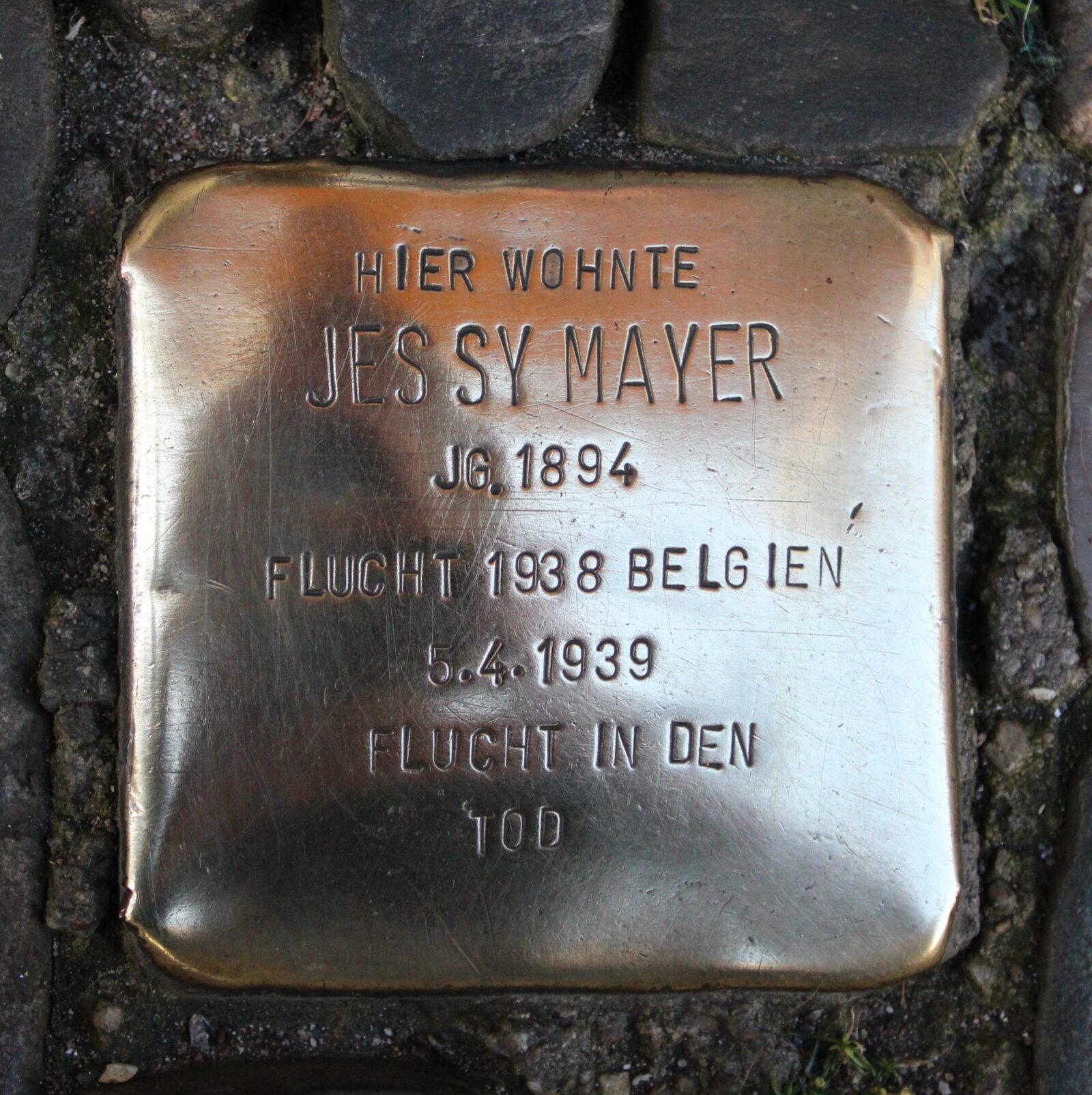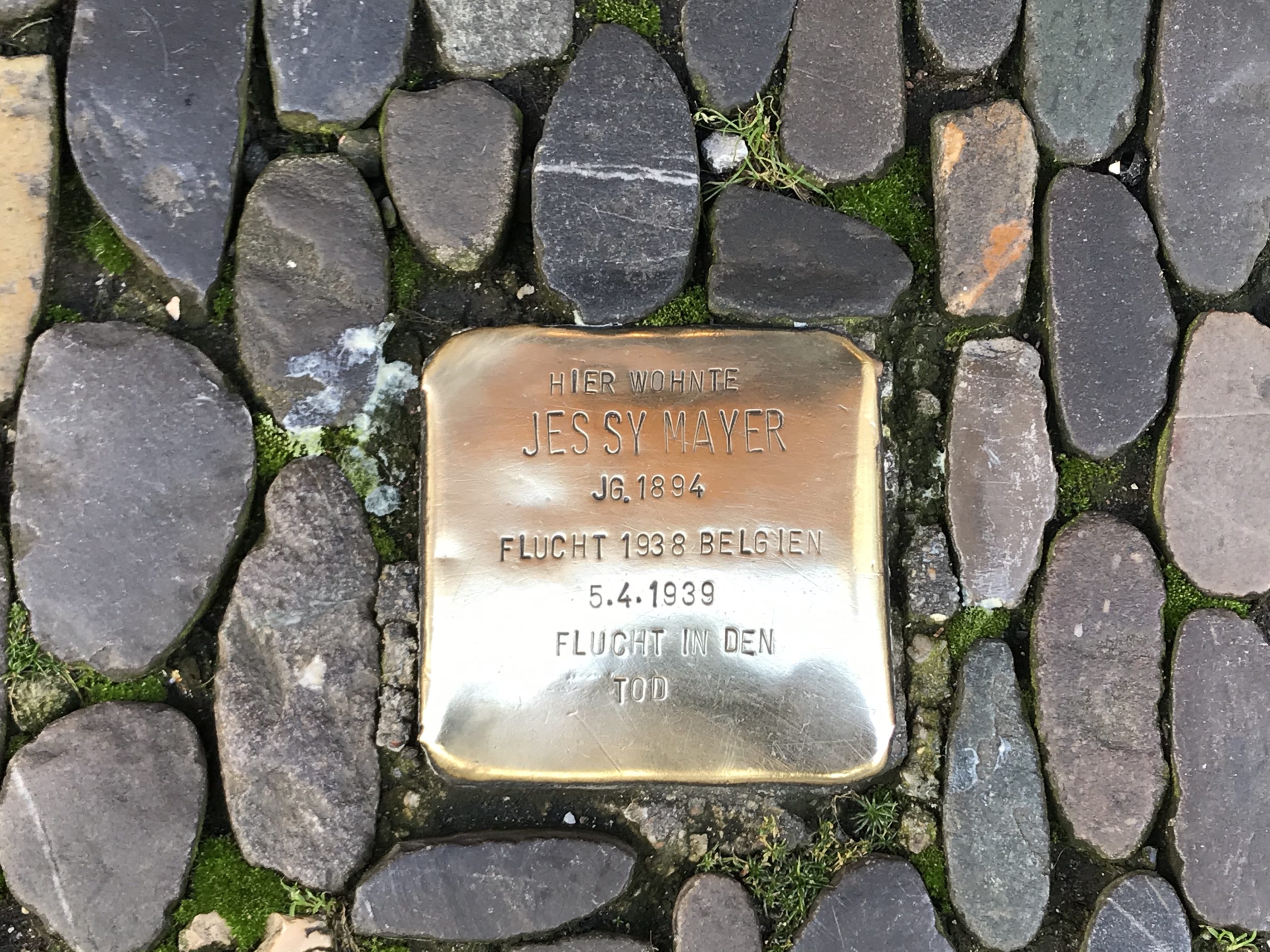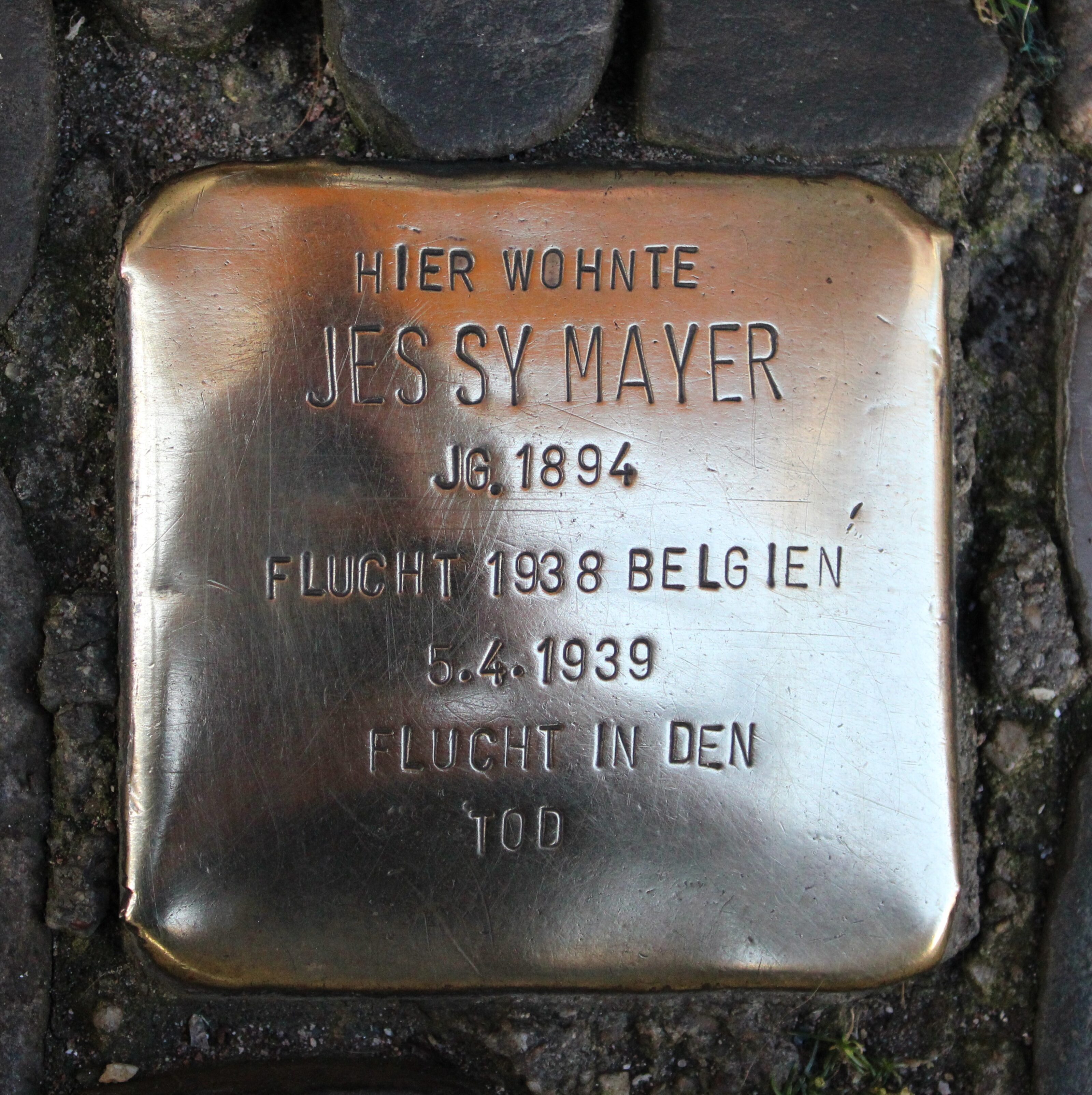
Jessy Mayer
JESSY MAYER was born on March 1, 1894 in Freiburg. He was the youngest son of Josephine and Elias Mayer. His father, who came from Müllheim, founded the Freiburg bank E. Mayer in 1879, which was already located at Salzstrasse 24 at that time. The family lived in the same house above the business premises. JESSY MAYER had five older siblings. His eldest brother Gustav Mayer was a well-known lawyer in Freiburg, his sister Selma, the second oldest of the siblings, was married to Alfred Hauptmann, who held a chair in medicine at the University of Freiburg. JESSY MAYER was divorced and had a son and a daughter with his wife.
In 1922, JESSY MAYER took over the bank a year before his father’s death. In addition to private individuals, their customers also included larger industrial companies. Business is said to have continued normally until 1936. Then the National Socialists put increasing pressure on customers not to do business with the “Jewish” bank anymore. In addition, Jewish customers were sometimes no longer able to pay because they were persecuted or emigrated. But non-Jewish customers also owed the bank more often. For example, a certain Mr. Trefzger had a debt of 15,000 Reichsmarks including interest. However, since he had good connections with the National Socialist Party, it was too dangerous for the bank to collect these debts. Due to these difficulties, JESSY MAYER increasingly concentrated on pure foreign business, mainly on transport financing and traveler’s check transactions. In doing so, he was not only able to save the bank, but also increase the net profit from almost 15,000 Reichsmarks in 1933 to over 35,000 Reichsmarks in 1936. Good contacts in the Reich Ministry of Economics helped him. Since the National Socialists urgently needed foreign currency, JESSY MAYER was also welcome there as an expert with a Jewish religion. He often negotiated in Berlin with Bankrat Niemens, the right-hand man of the Reich Finance Minister Hjalmar Schacht. The condition, however, was that he maintained absolute secrecy about these business relationships.
In October 1936, at the instigation of the Karlsruhe foreign exchange office, he was arrested in Berlin and taken to Freiburg. On October 31st, he was brought before the customs investigation office, whose officers, together with the Gestapo, searched the rooms of his bank, JESSY MAYER’s home on Lorettostrasse, and even his mother’s house. Nothing incriminating was found, and after a call to the Reich Ministry of Economics, JESSY MAYER was released. Nevertheless, the authorities initiated proceedings against him for foreign exchange offenses and confiscated his passport on November 2, 1936. A few days later, the customs investigation office confiscated two mortgage bonds for 50,000 Reichsmarks. The Berlin foreign exchange office demanded that he pay back 175,000 Reichsmarks to the Golddiskontbank for the alleged damage and had seizures carried out both in the bank and privately. JESSY MAYER tried to negotiate with the Reich Ministry of Economics to clarify the matter. But when Göring won the power struggle over economic policy against Schacht, JESSY MAYER no longer had a chance to defend herself against the unjustified accusations. His Swiss business partners were horrified by what was happening. After these incidents, JESSY MAYER feared further arrests and reprisals. However, he was officially unable to leave the country because he had not received his passport back. At that time he lived in Freiburg with his 13-year-old son Arno and his mother Josephine. His divorced wife lived in Kenya, the daughter was staying with relatives in France. On November 5, 1938, JESSY MAYER finally escaped with his son via Switzerland to Belgium. In order not to attract attention, they left all their belongings behind. But he also feared being caught by the Nazis in Belgium. Therefore, on April 5, 1939, five months after his arrival in Brussels, he fled to his death at the age of 45. His son stayed behind with friends in Belgium. The mother managed to bring him and his sister to Kenya.
Since Josephine Mayer died in Freiburg in March 1939 at the age of 80 and there was no longer a family member on site, the state liquidated the bank and confiscated all of its assets. The family’s land and houses were sold below value and the inventory was auctioned off. Bank deposits and securities were also looted. Even under National Socialist legislation, this would actually not have been possible. The tax office used the confiscated assets to pay, among other things, National Socialist compulsory levies such as the ‚Reich Flight Tax‘ or the ‚Jewish Property Levy‘. After the war, the surviving members of the Mayer family received the land and compulsory taxes back and sold the bank to the Freiburg merchant Wilhelm Imm in 1954. No member of the MAYER family returned to Germany.


